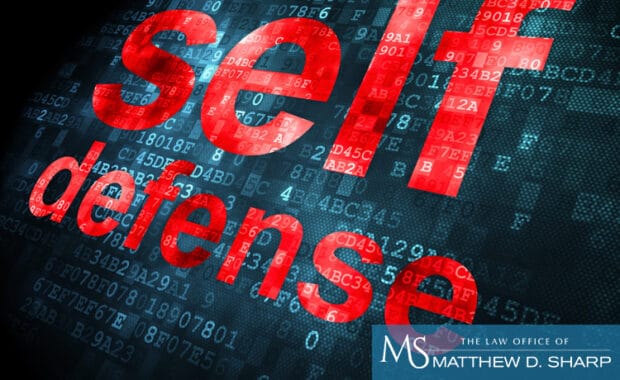Money laundering is frequently mentioned in the news. What is money laundering?
Money laundering describes the processes use by criminals to obfuscate initial ownership and/or control of financial proceeds generated by criminal conduct—and making these proceeds look like they were obtained through legitimate means.
Many billions of dollars are successfully “cleansed” through banks and other institutions each year. Unfortunately, the financial community is vulnerable to domestic and international money launderers.
How is Money Laundering Committed?
Money laundering often occurs when an individual or group is engaged in an arrangement that involves a financial institution. The individual or business seeking to launder criminal proceeds may develop a mutually beneficial relationship with a bank, investment manager, or fiduciary.
In many instances, the organization or person offering the resources, services, or arrangement suspects (or has reason to suspect) that the proceeds involved are derived from criminal activity. In this scenario, the provider knows (or has reason to believe) that the client is either involved in (or previously benefitted from) illegal activity.
Crime and Money Laundering
Many serious crimes, such as arms trafficking, drug sales and distribution, bribery, terrorism, illegal gambling, fraud, prostitution, corruption, and/or robbery may involve money laundering.
Logically, money laundering is clearly an illegal activity for the individual(s) engaging in crime.
The answer is more complex when considering why it’s illegal for the financial institution to assist the criminal(s).
Law enforcement seeks to remove the profit motive from crime. The logic is that it’s also wrong for an organization or individual to help criminals to benefit from criminal activities (or to even facilitate their plans to commit crimes) by offering financial services to them.
How is Money Laundered?
In general, money is considered “clean” when the business or individual benefits from crime. This may happen in a variety of diverse ways.
Financial experts explain that money laundering uses a three-stage process, including:
- The placement stage: Funds obtained through criminal means (“dirty money”) are deposited into the financial system.
- The layering stage: The proceeds are “cleaned” in some way. Often, complex bookkeeping transactions are used at this stage. The source of funds and the ownership of funds are disguised.
- The integration stage: Finally, clean money is returned in some way to the legitimate mainstream economy.
The above is a highly simplified example of the money laundering process. In reality, these three stages often entwine or overlap.
Understanding Money Laundering
The goal of money laundering is to allow the criminal or criminal enterprise to use illegally obtained money or assets.
Consider that dealing in wads of cash generated from crime is dangerous and inefficient. However, it’s impossible for the criminal to simply deposit the funds into a local bank.
The criminal must find a way to deposit the funds, but this can only happen if these funds appear to originate from a legitimate business or income source.
Money Laundering Strategies
A common way to launder funds is to funnel it through a business that operates on a cash basis. The criminal enterprise typically owns the cash-based business for the purpose of laundering dirty funds.
For example, the criminal organization may own a restaurant, a popular type of “front” business for money launderers:
- To clean illegally-obtained money, an owner could inflate daily receipts from business to absorb the additional cash.
- After inflating the books, the owner could then deposit the dirty money into a business bank account.
- At that point, the owner could distribute “clean” cash from the bank account.
A second way to launder money is known as smurfing. This occurs when an individual divides larger amounts of cash into smaller, more manageable deposits:
- The smurf might also spread out deposits to various financial accounts to avoid the possibility of government detection.
- Financial institutions, broker-dealers, and others must report cash deposits greater than $9,999 to the IRS.
- According to the Federal Financial Institutions Examinations Council (FFIEC), institutions look for red flags, including a customer with several accounts who makes frequent deposits of less than $10,000 each.
- Institutions also look for individuals or groups that open numerous accounts in one or multiple names, making multiple cash deposits of less than $10,000 each, or deposits using travelers and/or bank checks.
Money launderers also use currency exchanges, “mules” (cash smugglers), and wire transfers to move cross-border cash and to make offshore deposits in jurisdictions where money-laundering laws aren’t as strict. Money launderers may also buy easily transported commodities, such as precious metals and diamonds. They may also buy and sell real property or establish “shell companies” to hide ill-gotten funds.
Online criminal activities
Older ways to launder money are still in use around the world, but the Internet offers new possibilities as well:
- Money launderers can take advantage of anonymous payment services, online banks, or peer-to-peer financiers using their mobile devices.
- They can take advantage of virtual cryptocurrencies, such as bitcoin (BTC) to make it more difficult to detect illegal fund transfers.
- They can also use software that “anonymizes” their identity and geolocation, making it more difficult for law enforcement to trace their whereabouts.
Role of cryptocurrencies
Cryptocurrencies allow money launderers to transfer funds without using a financial institution. Though making a cryptocoin transfer isn’t completely anonymous, individuals involved in the drug trade or involved in blackmailing schemes prefer them to fiat currencies used by global banks.
Gambling and virtual game sites
Money launderers can also clean money by online auction or sales sites, gambling sites, and virtual gambling sites.
It’s possible to convert dirty funds into gambling currency, then transfer it to usable clean funds.
Unfortunately, anti-money laundering law is challenged to keep up with online cybercrime trends. Most of these laws focus on uncovering dirty funds funneled through traditional financial institutions.
Impact of Money Laundering
Money laundering is a big problem. It damages the financial institutions and businesses society depends upon. In addition:
- Laundered money continues to play a major role in funding illegal arms deals, drug smuggling, and terrorism.
- According to a PwC survey, (2016) money laundering transactions represent up to five percent of global gross domestic product—as much as USD 2 trillion each year.
Money Laundering: a Victimless, White-Collar Crime?
Money laundering is frequently connected to violent and serious criminal activities.
Some of the world’s largest and most prestigious financial institutions, including Deutsche Bank, Lloyds Banking Group, ING, and the Royal Bank of Scotland, have paid fines because they facilitated transactions that ultimate assisted money laundering activities in Russia, Iran, Sudan, and Libya.
The Texas Money Laundering Statute
The state of Texas considers money-laundering as a serious crime. The Texas Money Laundering Statute (Texas Penal Code Title 7, Chapter 34, § 34.02) describes the crime (“knowingly” maintaining an interest in, or concealing, transporting, transferring, or facilitating transaction(s) that involve the results of criminal activity, or investing, receiving, spending, or financing such proceeds).
If the defendant knows that proceeds originated from any form of criminal activity, or if a law enforcement officer, or other party informs him or her that the funds/proceeds derived from criminal activities (or they’re to be used in the commission of criminal activities), the law considers that the defendant had “required knowledge” about these proceeds.
Possible defenses against money laundering in Texas
Money laundering is a complex crime. An experienced money laundering lawyer considers each client’s unique case facts before developing a defense strategy.
Defenses might include the defendant’s lack of knowledge or that he or she acted in a way to help in the “lawful seizure” of the assets.
Money laundering punishments in Texas
In Texas, the penalty and/or sentence imposed depends how much money is involved:
- If the amount of money is at least $1,500 (but less than $20,000), the defendant faces a state jail felony. If convicted, he or she may receive a six-month to two-year jail term and/or up to $10,000 in fines.
- If the amount of money is at least $20,000 (but less than $100,000), the defendant faces a third-degree felony. If convicted, he or she may receive a two-year to 10-year prison sentence and/or up to $10,000 in fines.
- If the amount of money is at least $100,000 (but less than $200,000), the defendant faces a second-degree felony. If convicted, he or she may receive a two-year to 20-year prison sentence and/or up to $10,000 in fines.
- If the amount of money is $200,000 or more, the defendant faces a first-degree felony. If convicted, he or she faces at least five years in prison (up to life in prison), plus up to $10,000 in fines.
Contact an Experienced Money Laundering Defense Lawyer in Houston TX
Money laundering crimes often involve complex defense challenges. Often, it’s important to perform in-depth financial analysis to identify evidentiary issues.
If you are facing a money laundering charge, you need an experienced criminal defense lawyer. Contact The Law Office of Matthew D. Sharp at 713-868-6100 now.






